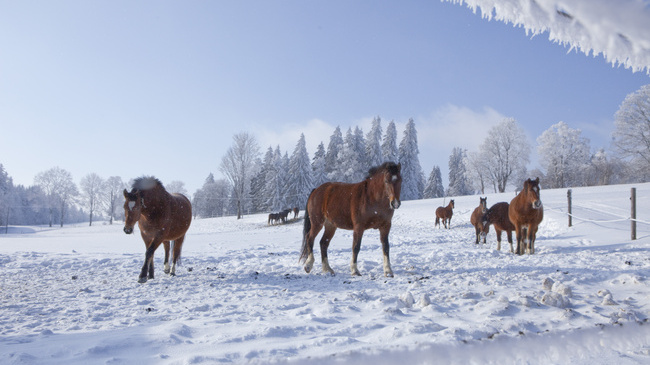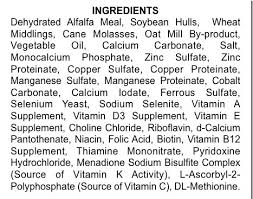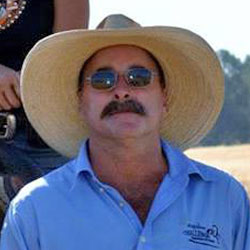
Winterizing The Hard Keeper Horse
The cold winter months are upon us. As the temperature dips, you may find that your horse has more difficulty keeping weight on. If this sounds like your horse, here are some tips on how you can help them stay warm during these frigid winter days and nights! Always make sure your horse has plenty of hay or other forms of high fiber food available at all times. Winterizing the hard keeper horse.
Whole Oats
Add more WHOLE oats to the evening feeding. How much you ask? If you are currently feeding whole oats you can add a cup in the morning and a cup at night. If you are just starting whole oats the amount will depend on the size of the horse and the current weight. You can start with approx. 1 1/2 pounds a day.
If you increase the whole oats and the horse is still losing weight, try adding two extra cups to the daily feeding for a week. When your horse is maintaining his weight then you know you are feeding the right amount. This will help keep their digestive system moving which will aid in keeping them warm. This will also provide them with needed nutrients. An area where they can get out of the wind and into shelter is a must.
Far too many horse owners turn to commercial Senior Feeds to keep weight on their horse. Commercial feeds typically contain a great deal of byproduct waste. This byproduct waste material is what remains of the original whole food which is processed for human consumption. For Example: wheat middlings or wheat millrun, rice bran, beet pulp, soy bean hulls, soy oil, soy meal, Distiller’s Dried Grain solutes, feed grade molasses, ground corn, Distiller’s fermentation solutes, ground cotton seed, almond hulls, … on and on.
The processing of these food materials removes the vast majority of the food’s natural qualities. Qualities such as their antioxidative qualities, the phenolic compounds, dietary fiber, the fats or oils, selenium, the phytoestrogens and more. These foods many times become “dead” foods, especially the foods which have been stabilized to prevent them from going rancid. These are also called hollow calories.
This byproduct material is digested very quickly and the glucose is released very quickly into the bloodstream. Another way this phenomenon is describ, the glucose index will spike. When this high glucose level is elevated the pancreas will produce more insulin. The horse who has been grazing for 4 million years for 18 hours a day in its environment, naturally produces insulin 24/7. Insulin triggers the cell walls of the horse
to freely accept glucose or sugar from the bloodstream.
Please read those feed labels. If you see that the first 6-7 items are byproduct waste, that is what you are feeding your horse, per volume. Those vitamins and minerals in a 50 pound bag of feed are not very much volume wise. The vast majority of that bag of processed feed by volume is byproduct waste, wheat middlings or wheat millrun, rice bran, beet pulp, soy meal, soy hulls, soy oil, Distiller’s Dried Grain solutes, feed grade molasses, Distiller’s fermentation solutes, almond hulls, ground corn, etc…..

As winter begins to wane and your horse is putting on undesired weight it is time to decrease the feeding of additional whole oats to the level of desired weight. Yes, this may seem more time consuming, it isn’t. Just keep in mind the horse is in a constant state of metabolic flux. Knowing your horse is critical in responsibly managing the day to day stewardship of your horse or horses.

As we recommend the feeding of whole oats to horses, remember that whole oats represent 35 – 45% more body heat production than an equal amount of corn. In the colder snaps of winter weather we recommend feeding the major portion of your whole oats in the evening feeding. Doing this will produce more body heat in the morning (1:00 am to 4:00 am) when it is most needed. If your horses are losing weight given the colder weather, increase your whole oats in the evening feeding. Also, the fiber level of oats is 10-12% and is therefore less likely to cause laminitis or digestive problems as compared to other grains. For those horses that need a little extra help you can follow the Weepago diet which consists of 8 packed cups of alfalfa fines and 3 cups of
of WHOLE oats.
For those horse owners who struggle with those easy keepers and you struggle daily with keeping your horse’s weight down. Winter is the season to get a jump start on those over weight horses. The horse will burn more calories in the winter due to the burning of calories to generate body heat to combat the colder weather. Knowing this, one can use the colder weather to their metabolic advantage. Feed your overweight horse less at the night feeding. The horse will need to go to their stored energy, otherwise known as fat, as the energy source to beat the coldness and remain warm, thereby losing weight.
Thank you for choosing Equine Challenge Supplements. If you have any questions, always feel free to call 559-905-7528
Kathy Hartwig
Mackie Hartwig, D.C.
“You’re never wrong when you do the right thing”

